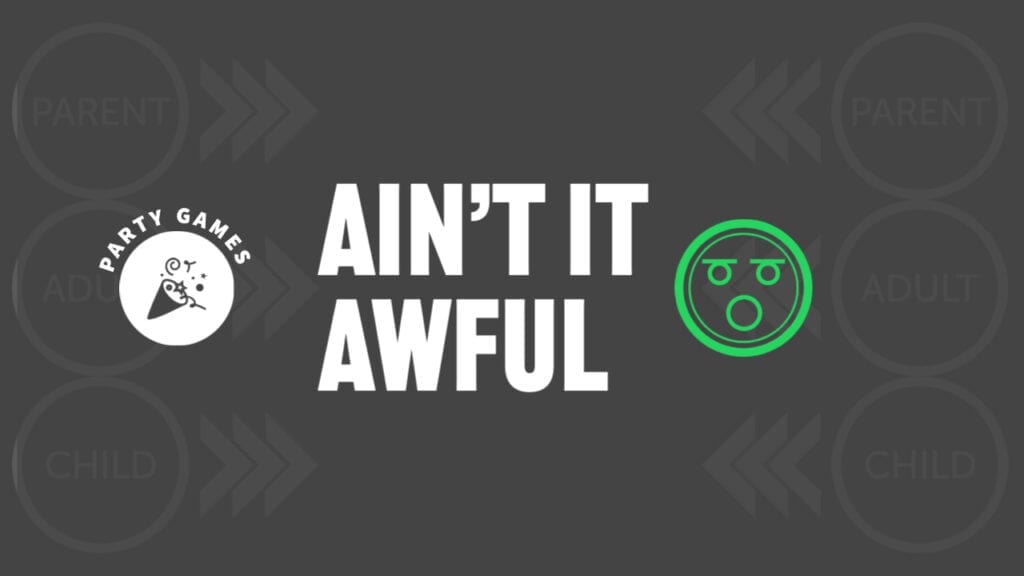This is played in four significant forms: Parental pastime, Adult pastime, Child pastime and game. In the pastimes there is no denouement or payoff, but much unworthy feeling.
- ‘Nowadays’ is the self-righteous, punitive or even vicious Parental pastime. Sociologically it is common among certain types of middle-aged women with small independent incomes. One such woman withdrew from a therapy group when her opening move was met with silence instead of with the excited corroboration she was accustomed to in her social circle. In this more sophisticated group, accustomed to game analysis, there was a conspicuous lack of togetherness when White remarked: ‘Speaking of not trusting people, it’s no wonder you can’t trust anyone nowadays. I was looking through the desk of one of my roomers, and you won’t believe what I found.’ She knew the answers to most of the current community problems: juvenile delinquency (parents too soft nowadays); divorce (wives without enough to do to keep them busy nowadays); crime (foreigners moving into white neighbourhoods nowadays); and rising prices (businessmen too grasping nowadays). She made it clear that she herself was not soft with her delinquent son, nor with her delinquent tenants.
‘Nowadays’ is differentiated from idle gossip by its slogan ‘It’s no wonder’. The opening move may be the same (‘They say that Flossie Murgatroyd’), but in ‘Nowadays’ there is direction and closure; an ‘explanation’ may be offered. Idle gossip merely rambles or trails off.
- Broken Skin’ is the more benevolent Adult variation, with the slogan ‘What a pity!’ although the underlying motivations are equally morbid. ‘Broken Skin’ deals primarily with the flow of blood; it is essentially an informal clinical colloquium. Anyone is eligible to present a case, the more horrifying the better, and details are eagerly considered. Blows in the face, abdominal operations and difficult childbirths are accepted topics. Here the differentiation from idle gossip lies in the rivalry and surgical sophistication. Pathological anatomy, diagnosis, prognosis and comparative case studies are systematically pursued. A good prognosis is approved in idle gossip, but in ‘Broken Skin’ a consistently hopeful outlook, unless obviously insincere, may invoke a secret meeting of the Credentials Committee because the player is non particeps criminis.
- ‘Water Cooler’, or ‘Coffee Break’, is the Child pastime, with the slogan ‘Look what they’re doing to us now.’ This is an organizational variant. It may be played after dark in the milder political or economic form called ‘Bar Stool’. It is actually three-handed, the ace being held by the often shadowy figure called ‘They’.
- As a game, ‘Ain’t It Awful’ finds its most dramatic expression in polysurgery addicts, and their transactions illustrate its characteristics. These are doctor-shoppers, people who actively seek surgery even in the face of sound medical opposition. The experience itself, the hospitalization and surgery, brings its own advantages. The internal psychological advantage comes from having the body mutilated; the external psychological advantage lies in the avoidance of all intimacies and responsibilities except complete surrender to the surgeon. The biological advantages are typified by nursing care. The internal social advantages come from the medical and nursing staff, and from other patients. After the patient’s discharge the external social advantages are gained by provoking sympathy and awe. In its extreme form this game is played professionally by fraudulent or determined liability and malpractice claimants, who may earn a living by deliberately or opportunistically incurring disabilities. They then demand not only sympathy, as amateur players do, but indemnification. ‘Ain’t It Awful’ becomes a game, then, when the player overtly expresses distress, but is covertly gratified at the prospect of the satisfactions he can wring from his misfortune.
In general, people who suffer misfortunes may be divided into three classes.
- Those in whom the suffering is inadvertent and unwanted. These may or may not exploit the sympathy which is so readily offered to them. Some exploitation is natural enough, and may be treated with common courtesy.
- Those in whom the suffering is inadvertent, but is gratefully received because of the opportunities for exploitation it offers. Here the game is an afterthought, a ‘secondary grain’ in Freud’s sense.
- Those who seek suffering, like polysurgery addicts who go from one surgeon to another until they find one willing to operate. Here the game is the primary consideration.
